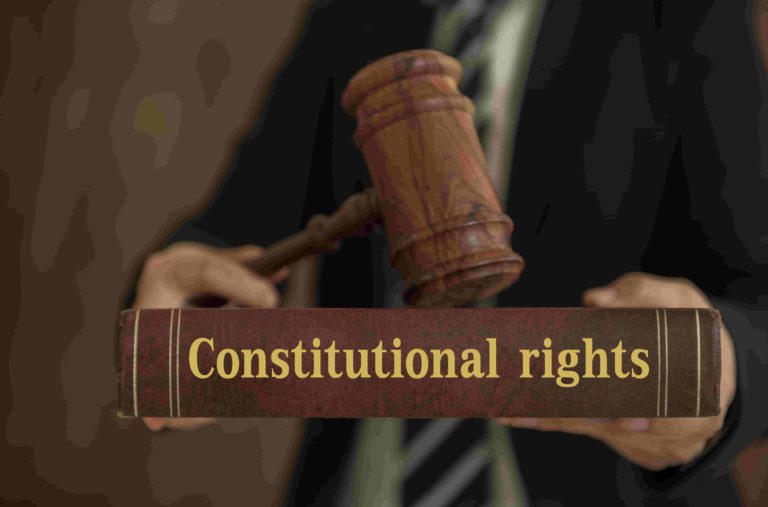
When you are arrested or charged with a crime in Michigan, knowing your consitutional rights is important. These rights are guaranteed by the United States Constitution. The Criminal Defense Law Center of West Michigan knows what these rights are and how to defend your constitutionally protected rights.
You Have The Right To Speak With An Attorney
The police must advise you that you have a right to speak with an attorney as soon as possible after your arrest. If you request to speak with an attorney, the police may not ask you any questions about the incident until you have had an opportunity to speak with an attorney. It is never in your best interest to talk to the police without first talking to a competent attorney.
You have a right to refuse to answer any questions.
A law enforcement officer may require you to identify yourself but cannot require you to make statements or answer any questions. Any information you provide to the officer can (and probably will) be used if charges are filed against you at a later time. This is true even if you do not give a formal, signed “statement.” It is always better to decline to make any statements or answer a question until after you have consulted with a lawyer.
You Have A Right To Be Brought Before A Judge To Address Your Release From Jail
If you are arrested and booked into jail, you have a right to be brought before a judge to address your detention and set bail and/ or conditions for your release. This generally occurs between 24 and 72 hours of your arrest.
You Have A Right To Plead Not Guilty At Arraignment
A plea of not guilty at arraignment will not be held against you at any time. In fact, many courts will not allow you to plead guilty to a serious charge without consulting an attorney first.
You Have A Right To An Attorney
You have a right to have an attorney of your choosing represent you throughout the entire criminal process and for that attorney to be present with you at all court hearings. If you cannot afford an attorney and qualify financially, the court will appoint a public defender to represent you.
You have a right to a speedy and public jury trial.
You have a right to a speedy and public trial by jury. A speedy trial is one that occurs no more than ninety days from your first court appearance if you are out of custody (jail) or sixty days if you are in custody (jail). Your trial would occur in a courtroom open to the public. Your jury would consist of people from the community who would hear all the evidence presented and make a decision as to your guilt or innocence.
You Have A Right To Be Presumed Innocent
You have a right to be considered innocent of any criminal charge until you are convicted or until you enter a plea of guilty. However, the court does have the power to impose certain conditions while the case is pending against you – this can include no-contact orders, orders to not drive without ignition interlock, or even the posting of bail or bond.
Simply by knowing your consitutional rights, you can change the options available to you after a criminal arrest. Don’t let police and proseecutors trick you into doing or saying something which goes against your best interests.
You Have A Right To Be Convicted By Proof Beyond A Reasonable Doubt
You have a right to require that the prosecutor prove every element of a charge beyond a reasonable doubt. This is the highest burden of proof in the legal system. As a defendant, you are not required to present any evidence or prove your innocence.
You Have A Right To Confront Witnesses Who Testify Against You
You have a right to confront and cross-examine all witnesses testifying against you. This means that the prosecutor will subpoena witnesses to testify against you, and you (through your attorney) will be able to question these witnesses.
You Have A Right To Call Witnesses To Testify On Your Behalf
You have a right to call witnesses who can testify on your behalf. These witnesses can be compelled to appear in court by subpoena. You have a right to testify or not testify. You have a right to remain silent and not incriminate yourself. This means that if you choose not to, no one can force you to take the stand and testify. If you choose not to testify, this cannot be held against you.
You Have The Right To Testify
If you choose to testify, the prosecuting attorney is allowed to cross-examine you about your case and anything you say while testifying.
You Have A Right To Appeal A Conviction Or Sentence
If you are convicted of a criminal charge you have a right to appeal this conviction to a higher court.